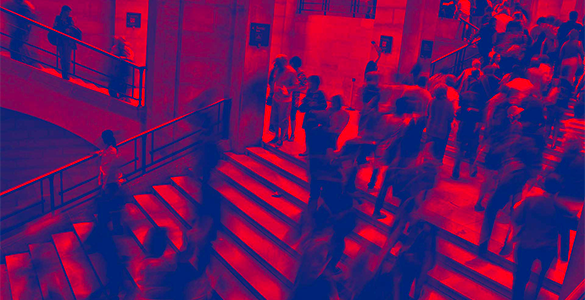Transparency Issues in Tracing COVID-19
A need for new technological tools has emerged during the current Sars-Cov-2 pandemic. In particular, several mobile applications based on digital tracking and contact tracing have been developed, with ethical implications that have been addressed differently by a number of countries.
The SoBigData community published a white paper, entitled “Give more data, awareness and control to individual citizens, and they will help COVID-19 containment” (https://bit.ly/whitepaper_covid_sobigdata). The white paper states:
“contact-tracing apps are being proposed for large scale adoption by many countries. A centralized approach, where data sensed by the app are all sent to a nation-wide server, raises concerns about citizens' privacy and needlessly strong digital surveillance, thus alerting us to the need to minimize personal data collection and avoiding location tracking. We advocate the conceptual advantage of a decentralized approach, where both contact and location data are collected exclusively in individual citizens' "personal data stores", to be shared separately and selectively, voluntarily, only when the citizen has tested positive for COVID-19, and with a privacy preserving level of granularity.”
Aside from the numerous critical evaluations of this technology, a number of countries have published the source code for their official tracking applications, allowing a further degree of transparency and ethical evaluation. What follows is a list of tracking applications and their source code locations, which allow any interested party to evaluate these applications from an ethical point of view.
● Australia – CovidSafe (https://www.health.gov.au/resources/apps-and-tools/covidsafe-app)
o Source code (https://github.com/AU-COVIDSafe/mobile-android).
● Austria – Stopp Corona (https://www.roteskreuz.at/site/meet-the-stopp-corona-app/)
o Source code (https://github.com/austrianredcross/stopp-corona-android
● Czekia – eRouška (https://erouska.cz/)
o Source code (https://github.com/covid19cz/erouska-android)
● France – StopCovid (https://www.economie.gouv.fr/stopcovid)
o Source code (https://gitlab.inria.fr/stopcovid19)
● Germany – Corona Warn App (https://www.coronawarn.app/en/)
o Source code (https://github.com/corona-warn-app)
● Iceland – Rakning C-19 (https://www.covid.is/app/en)
o Source code (https://github.com/aranja/rakning-c19-app)
● India – Aarogya Setu Mobile App (https://www.mygov.in/aarogya-setu-app/)
o Source code (https://github.com/nic-delhi/AarogyaSetu_Android)
● Israel – Hamagen (https://govextra.gov.il/ministry-of-health/hamagen-app/download-en/)
o Source code (https://github.com/MohGovIL/hamagen-react-native)
● Italy – Immuni (https://www.immuni.italia.it/)
o Source code (https://github.com/immuni-app)
● Norway – Smittestop (https://helsenorge.no/coronavirus/smittestopp?redirect=false)
o Reverse engineered source code (https://github.com/djkaty/no.simula.smittestopp/)
● Poland – Protego (https://safesafe.app/)
o Source code (https://github.com/ProteGO-Safe/web)
● Singapore – TraceTogether (https://www.tracetogether.gov.sg/)
o Source code (https://github.com/opentrace-community)
● Spain – OpenCoronavirus (https://opencoronavirus.app/)
o Source code (https://github.com/open-coronavirus/open-coronavirus)
● Switzerland – SwissCovid (https://ethz.ch/services/en/news-and-events/solidarity/pilot-swiss-covid-app.html)
o Source code (https://github.com/DP-3T/dp3t-app-android-ch)
● United Kingdom – NHS Covid19 (https://covid19.nhs.uk/)
o Source code – (https://github.com/nhsx/COVID-19-app-Documentation-BETA)
Alongside national applications, Apple and Google developed an Exposure Notification system, providing sample code and information at https://www.apple.com/covid19/contacttracing. Moreover, an updated list of apps and source codes is currently maintained at http://open-source-covid-19.weileizeng.com/.
Besides individual citizens, experts in the field are studying and evaluating these apps. One of the most distinguished institution is the Massachusetts Institute of Technology (MIT), which published an article summarizing the various apps on the basis of five major questions:
- Is it voluntary? In some cases, apps are opt-in, but in other places many or all citizens are compelled to download and use them.
- Are there limitations on how the data gets used? Data may sometimes be used for purposes other than public health, such as law enforcement — and that may last longer than COVID-19.
- Will data be destroyed after a period of time? The data the apps collect should not last forever. If it is automatically deleted in a reasonable amount of time (usually a maximum of around 30 days) or the app allows users to manually delete their own data, we award a star.
- Is data collection minimized? Does the app collect only the information it needs to do what it says?
- Is the effort transparent? Transparency can take the form of clear, publicly available policies and design, an open-source code base, or all of these.
All the aforementioned apps can be downloaded and used on a voluntary basis (like the large majority of the ones considered in the list of the MIT article, where the only exceptions were Bahrain, China, India, Qatar, and Turkey). Actually, also Australia, France, Norway, Spain and Switzerland (not listed as transparent in the MIT summary) released their source code, guaranteeing a better transparency. From the MIT report, 17 apps rely on Bluetooth technologies, 7 will collect locations, while 5 of them will use an hybrid approach.
For more information: https://www.technologyreview.com/2020/05/07/1000961/launching-mittr-covid-tracing-tracker/

A screenshot of how the Italian Government Immuni App works
Post written by:
Marco Braghieri: marco.1.braghieri@kcl.ac.uk
Francesca Pratesi: francesca.pratesi@isti.cnr.it
Revised by:

